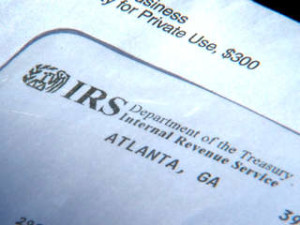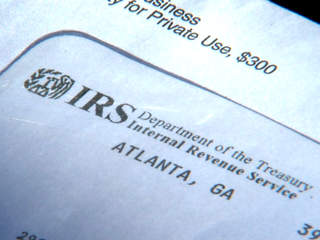Resolving a Notice from the IRS; Eight Facts to Know

The IRS sends millions of letters and notices to taxpayers for a variety of reasons. Many of these letters and notices can be easily dealt with without having to call or visit an IRS office. Here are eight things you should know about if you receive a notice or letter from the IRS and need a plan for resolving a notice from the IRS.
- Don’t panic. There are a number of reasons why the IRS might send you a notice. Notices may request payment, notify you of account changes, or request additional information. A notice normally covers a very specific issue about your account or tax return. Sometimes, by simply responding you’ll find you are fully resolving a notice from the IRS.
- Each letter and notice offer specific instructions on what action you need to take. Typically, an IRS notice is about a specific issue, such as changes to your account, regarding your federal tax return or tax account. It may ask you for more information. It could also explain that you owe tax and that you need to pay the amount that is due. Again by simply responding you’ll often find you are fully resolving a notice from the IRS.
- If you receive a correction notice, you should review the correspondence and compare it with the information on your tax return. If you agree with the correction to your account, then usually no reply is necessary unless a payment is due or the notice directs otherwise.
- Each notice has specific instructions, so read it carefully because it will tell you what you need to do.
- If you agree with the notice, you usually don’t need to reply unless it gives you other instructions or you need to make a payment. If you do not agree with the correction the IRS made, a tax professional can help you to prepare a written explanation to send to the IRS of why you disagree and make sure it includes any information and documents the IRS should consider that support your case. You should hear from the IRS within 30 days regarding your correspondence, often fully resolving a notice from the IRS.
- Most correspondence can be handled without calling or visiting an IRS office. In order for your accountant to handle any issues that arise more quickly, please have a copy of your tax return, as well as any correspondence from the IRS available when you call.
- Always keep copies of any notices you receive with your other tax records.
Cyber Scam & Identity Theft Alert!
- Be alert for tax scams. The IRS sends letters and notices by mail. The IRS does not contact people by email or social media to ask for personal or financial information.
Again by simply reading the instructions and responding you’ll often find you are fully resolving a notice from the IRS. If you have received a letter or notice from the IRS and have questions or concerns don’t hesitate to call.

